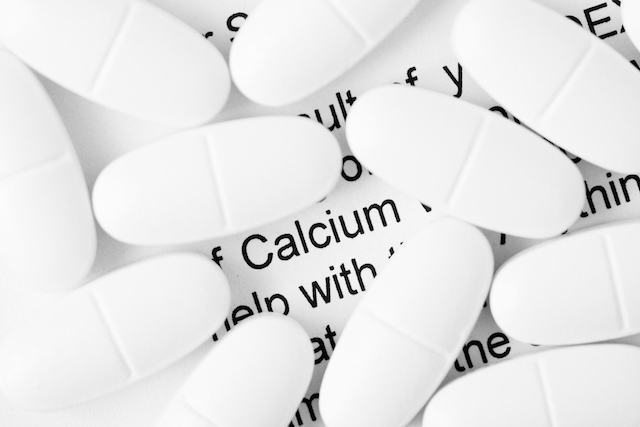Estimated reading time: 5 minutes
In the quest for optimal health, many individuals turn to supplements to fill in nutritional gaps and support their well-being. Calcium supplements, in particular, have garnered widespread popularity due to their perceived benefits in promoting bone health and overall vitality. However, taking calcium supplements can have unwanted side effects. In this post we will dive deeper into the potential drawbacks of these supplements to make informed choices about our health.
Understanding Calcium Supplementation
When it comes to calcium supplementation, it’s essential to comprehend why individuals resort to such measures. Often, people seek to bolster their calcium intake, fearing deficiencies that could compromise bone strength and resilience. These supplements come in various forms, from traditional pills to chewables and liquids, offering convenience and ease of consumption. Despite their ubiquity, many fail to meet the recommended daily intake, raising questions about their efficacy.
Identifying Side Effects of Calcium Supplementation
There are many side effects of calcium supplementation from potential risk of hip fractures, to cardiovascular disease, and kidney stones. Let’s explore some these side effects.
Calcium supplementation and strong bones?
In my nutrition courses during the 90’s, we were taught that supplementing with calcium was important to keep your bones strong and prevent osteoporosis (bone fractures because of weak bone). At that time, supplementing with 500mg – 1200 mg/day of calcium was recommended. However, what we didn’t know was there were potential side effects of calcium supplementation when it came to bone strength.
After thorough research , I have learned the alleged benefits of calcium supplementation for strengthening bones and teeth lack substantial evidence. Moreover, new research has shown that calcium supplementation does not increase bone density and does not decrease the risk of fractures. (1, 2, 3, 4) In fact, calcium supplementation may even increase the risk of hip fractures. (2)
Calcium supplementation does not increase bone density and does not decrease the risk of fractures. In fact, calcium supplementation may even increase the risk of hip fractures.
Calcium supplementation and cardiovascular disease as a side effect
Calcium supplementation increases the risk of heart disease and stroke. Let me explain. Ideally, our arteries (blood vessels) should remain soft and flexible. However, when our arteries become calcified, they become hard and fragile, thereby increasing the risk of heart disease and stroke. (5) This occurs because excessive calcium intake through supplementation can result in calcium being deposited into soft tissues like arteries. In fact, human beings have evolved to regulate calcium levels from food sources efficiently, even under high intake conditions. Nonetheless, this rregulatory mechanism becomes less effective with substantial calcium intake from supplements. (6)
Here is some supporting evidence:
- 139% higher risk of heart attack for those who took calcium supplements instead of calcium-rich food. (7)
- 31% higher risk of heart attack, a 20% higher risk of stroke, and a 9% higher risk of death from all cause. (8)
- 20% higher risk of death from cardiovascular disease with an intake of more than 1000 mg/day of supplemental calcium (from multivitamins or individual calcium supplements). (9)
Calcium supplementation increases the risk of heart disease and stroke.
Calcium supplementation and shoulder pain?
Shoulder pain is a common complaint in any doctor’s office. It’s often caused by strain or tearing of the rotator cuff muscles around the shoulder joint, a condition known as rotator cuff tendonitis. Calcific tendonitis, characterized by the formation of calcium deposits within the rotator cuff tendon, is also prevalent.
While there isn’t conclusive evidence linking excess calcium supplementation alone to calcific tendonitis, it may play a role in its development. A study revealed a significant correlation between calcium supplement intake and calcific tendonitis, with 76.7% of patients with the condition reporting calcium consumption compared to 22.7% of those without it. (10) Additionally, elevated blood calcium levels, often caused by vitamin D deficiency, have been identified as a potential factor. (11)
Given the propensity for high blood calcium levels to be deposited into soft tissues like the rotator cuff or arteries, it’s plausible that excessive calcium supplementation could contribute to the development of calcific tendonitis.
Other Side Effects of Calcium Supplements
There are other serious health consequences associated with excess calcium intake from calcium supplements:
- Increased risk of kidney stones at 1000 mg/day. (12, 13)
- 40% higher risk of death among women with high dietary calcium intakes (1400 mg and above), and a 157% higher risk of death if those women were taking a 500 mg calcium supplement daily on top of this total daily intake. This was compared to women with moderate daily calcium intakes (600-1000 mg) (14)
Balancing Calcium Intake and Health
In light of these potential side effects, it’s crucial to strike a balance in calcium intake to safeguard our health. While supplements offer a convenient solution, prioritizing dietary sources of calcium is paramount. Incorporating calcium-rich foods like canned sardines or wild sockeye salmon (with bones), leafy greens, dairy products and nuts and seeds into our diet ensures a steady supply of this vital mineral. Additionally, adopting lifestyle habits that promote calcium absorption, such as regular exercise and adequate vitamin D intake, can enhance the efficacy of our efforts.
Conclusion
In conclusion, while calcium supplements may seem like a cure-all for bone health, it’s essential to weigh their benefits against potential side effects. By understanding the nuances of calcium supplementation and adopting a holistic approach to health, we can navigate this terrain with confidence. Let’s prioritize moderation, dietary diversity, and proactive health management to optimize our well-being and vitality for years to come.
For a healthy spine and nervous system, contact Edmonton chiropractor Dr. Dean Collins. Or book a consult and exam with him today.
To learn more about how chiropractor care can help you and your family, read Dr. Collins’ comprehensive guide to chiropractic care: Chiropractic Care for Everyone.
Sign up for our Dr. Collins’ newsletters and blog posts
Sign up Dr. Collins’ newsletters to receive vital information on how to keep your spine and nervous system healthy as well as how to help optimize your health and avoid chronic illness.



Hi Dr. Collins:
Thank you so much for your interesting emails – always full of good information.
Have you read a book by – Kate Rheaume-Bleue, B.SC.,N.D. – called – Vitamin K2 and the Calcium Paradox?
I found her interesting too – sounds like Vit K2 plays a part in where calcium is supposed to go – into the bones and not the arteries.
Phyllis
Hi Phyllis, thanks for your comments. And yes, I have listened to Dr. Rheaume-Bleue on a podcast and have written about the importance of vitamin K2 in keeping bones healthy: ‘Supplements to Keep Your Bones Strong and Healthy’.
Dr. Collins
40% higher risk of death among women with high calcium intakes (1400 mg and above), and a 157% higher risk of death if those women were taking a 500 mg calcium supplement daily, compared to women with moderate daily calcium intakes (600-1000 mg) (14) this is reverse?
Thanks for the comment Ruth as it was confusing. I reworded it to make more sense: “40% higher risk of death among women with high dietary calcium intakes (1400 mg and above), and a 157% higher risk of death if those women were taking a 500 mg calcium supplement daily on top of this total daily intake. This was compared to women with moderate daily calcium intakes (600-1000 mg).”
Thanksalot,exellent.
You’re welcome. -Dr. Collins
Too many variables. How many people were studied? And for how long? What were their age ranges? What kind of calcium were they taking? What other supplements did they take with it? What kind of diet were they on during the study?
Hi Jim, I agree 100%. There are so many variables when trying to “prove” something related to the human body. Even when you have what are considered well designed studies (RCTs, systematic reviews, and meta-analysis studies) there are variables you can’t control. And then data can be fudged as well. It gets pretty messy. You have to take information from multiple sources and decide who you trust and what you think makes sense. -Dr. Collins
What if your rordered to t a ke calcium supplement and you are a high risk because of high cholesterol?
Hi Margaret, I can’t comment on that scenario as I don’t know your entire health history. However, if you’re not sure about the recommendations that have been given to you, you might want to consider consulting with other health professionals to get their professional recommendations. For example, you might want to consider seeing a doctor of naturopath or a functional medicine practitioner for a thorough consultation and examination.